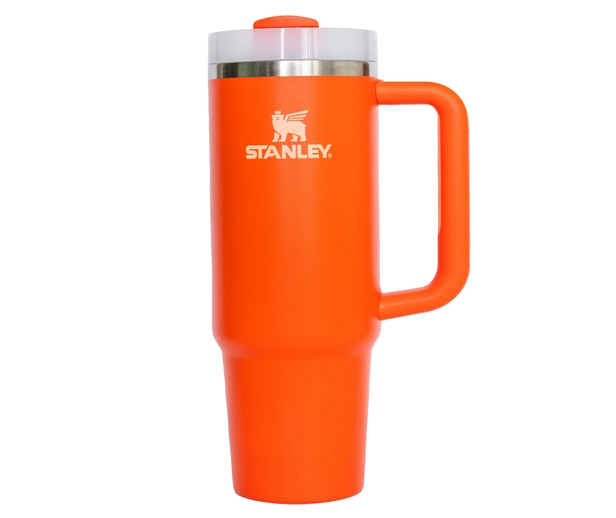December 05, 2024
Lawsuit: Third-Party Merchants Sold Knockoff Stanley Tumblers on Amazon
The lawsuit, filed by Stanley’s parent company and Amazon, is a good reminder to promo pros to source products only from reliable, vetted suppliers.
Key Takeaways
• Fraud Alleged: Stanley’s parent company, Pacific Market International, is suing two Amazon sellers for allegedly selling counterfeit Stanley tumblers.
• Shuttered: Amazon shut down the alleged counterfeit sellers and refunded customers, but the accused haven’t paid for those refunds.
• Multiple Court Battles: PMI faces a separate lawsuit over lead concerns in Stanley tumblers but has asked for the case to be dismissed.
The parent company of the Stanley tumbler brand is in another legal battle, but this time Pacific Market International (PMI) is on the offensive.
The Washington-headquartered company has sued two independent Amazon sellers, accusing them of working in cahoots to sell counterfeit Stanley drinkware on Amazon’s third-party marketplace. Amazon has teamed up with PMI and is a plaintiff in the case.
Filed this week in the U.S. District Court for the Western District of Washington, the suit identifies the defendants as John Fitzgerald Burns of Oregon and his reportedly Tennessee-registered limited liability company Burns Kicks, along with Wisconsin resident Carter James Golden and his Carter Golden LLC.
The suit accuses Burns and Golden of orchestrating and executing a scheme to sell knockoff Stanleys on Amazon for about six months starting from November 2023. They allegedly used Stanley trademarks and issued fake invoices.
During the period of alleged illicit activity, Stanley was the most popular drinkware brand on the market – a viral sensation driven, in part, by female social media influencers who’d latched onto the brand. The popularity carried deeply into the promotional products industry, with ASI Media naming the Stanley Quencher the 2023 Product of the Year.
“Defendants operated in concert with one another in their advertising, marketing, offering, distributing and selling of inauthentic Stanley-branded products,” the lawsuit alleges. “Defendants are associated through common internet protocol addresses used to access their selling accounts and common names on credit cards provided to Amazon in connection with operating their Amazon selling accounts.”
The Shutdown & Demand for Damages
Amazon caught wind of the alleged malfeasance and shut Burns and Golden down in the spring of this year, court records state. Amazon also said it issued refunds to consumers who’d been duped.
Still, the multinational technology company, whose platform dominates the e-commerce world, says that Burns and Golden have not forked over any money to pay for the refunds.
The lawsuit didn’t state how much revenue Burns/Golden generated through their alleged counterfeit sales, nor did it say how many units of bogus drinkware consumers purchased.
$1.2 billion
That’s how much Amazon says it invested in 2023 alone to combat fraud and counterfeiting on its online stores.
The suit asks a federal judge to permanently prohibit Burns and Golden from selling knockoffs. It also requests that the pair be ordered to give a full account of how many counterfeit Stanleys they sold and the cash that business generated, and then to pay damages.
The lawsuit can serve as a good reminder to promotional products pros to source products only from reliable, vetted suppliers. Accidentally providing knockoffs because of less-than-scrupulous sourcing practices can break essential ties of trust, crippling or killing a relationship with an end-client.
Amazon says it works tirelessly to combat fraudulent activity. The lawsuit states that Amazon employed about 15,000 people and invested $1.2 billion in 2023 alone to fight counterfeiting and fraud on its platform/online stores. The company’s counterfeit crimes unit seized more than 7 million bogus products last year, according to Amazon.
“Amazon invests vast resources to ensure that when customers make purchases in Amazon’s stores – either directly from Amazon entities or from one of its millions of third-party sellers – customers receive authentic products made by the true manufacturer of those products,” the lawsuit says.
A Lead-Based Legal Battle
As PMI presses its counterfeit lawsuit, the company is also defending a proposed class-action lawsuit consumers from several states have brought over concerns about the presence of lead in Stanley tumblers. PMI has filed motions to have the case dismissed, but a judge has not yet issued a ruling.
One of the arguments that PMI has made in favor of dismissing the case is that the plaintiffs have failed to show that the presence of lead in the tumblers has caused any negative health effects for anyone who bought the drinkware. The plaintiffs’ attorneys say that doing so is unnecessary because the case hinges on PMI failing to tell consumers about lead in the products, not actual health impacts.
The legal slugfest over a lawsuit centered on lead concerns in #Stanley #drinkware isn’t relenting. Here's the latest:https://t.co/pdzQ7t3aAZ
— Chris Ruvo (@ChrisR_ASI) October 7, 2024
After videos started circulating on social media about Stanley lead concerns, PMI said in January that the material it uses to vacuum-insulate tumblers at their base contains some lead. That ultimately led to lawsuits that were consolidated to the current case. PMI has argued that the area of the tumblers containing lead is covered with stainless steel and that lead does not come into contact with users.
While still generating end-client interest in promo, Stanley’s popularity in the merch space may have peaked.
In the third quarter of 2024, ASI Research shows searches for “Stanley tumbler” in ESP dropped more than 50% compared to Q3 last year.
That could be a result, in part, of the brand’s name now being synonymous with “tumbler.” Still, searches for just “Stanley” remained relatively stagnant from Q2 and outside of the top 25 search terms. Year over year, searches for the brand dropped 9% in Q3 in ESP.

